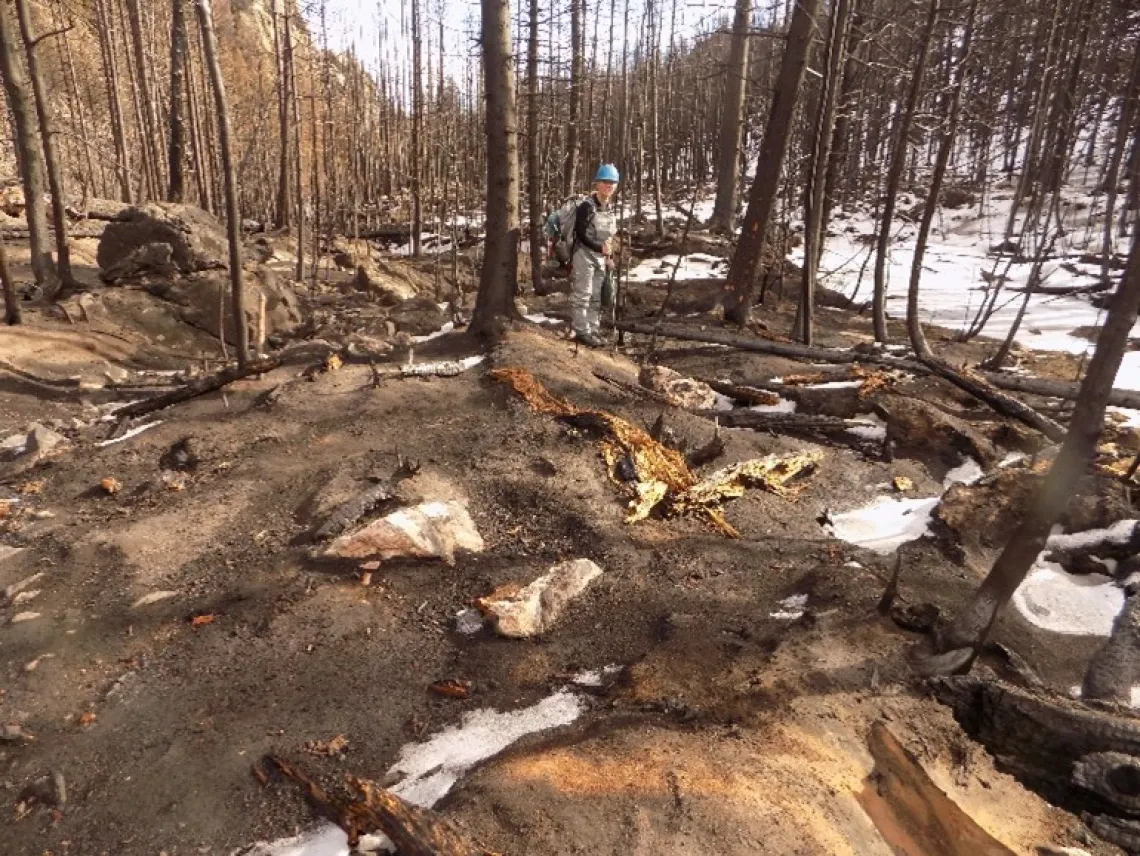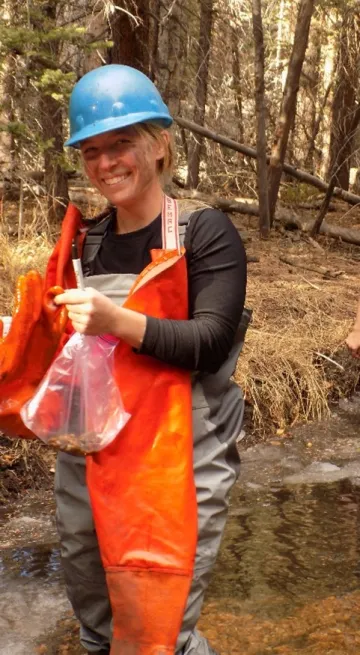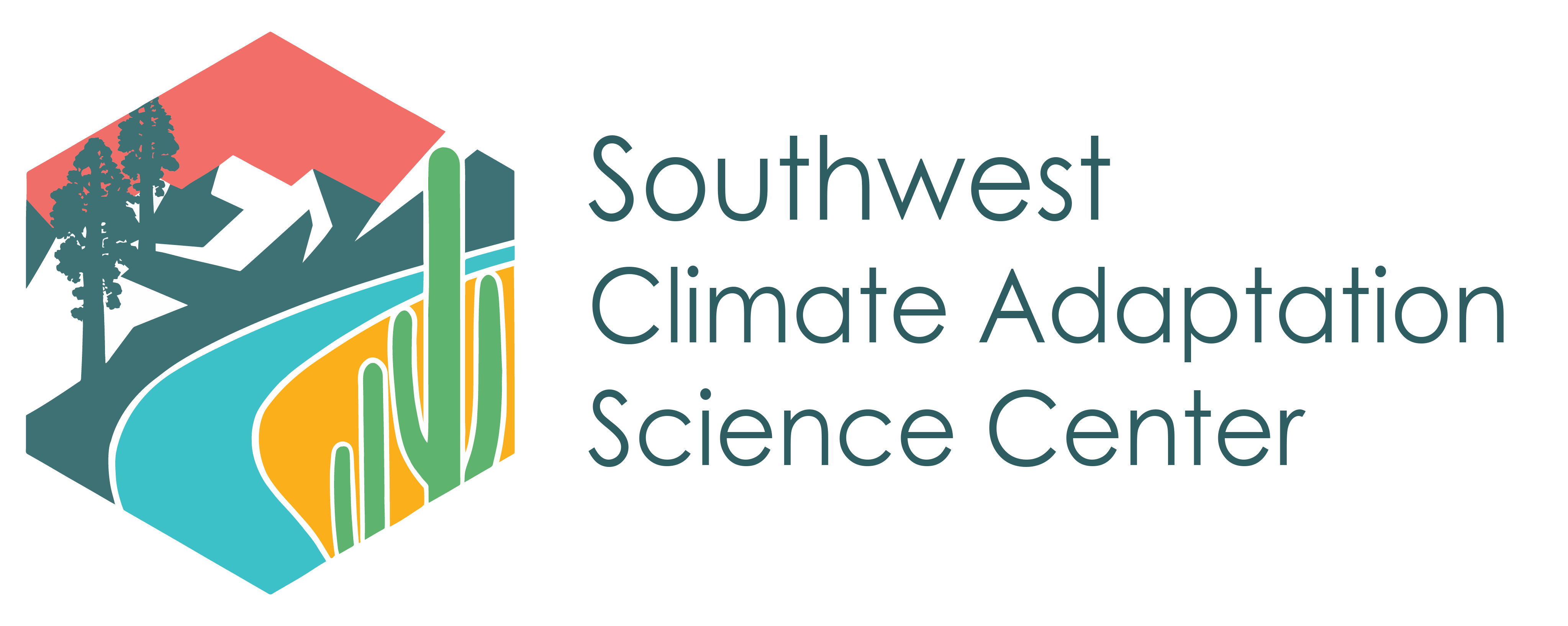Working with Resource Managers to Understand Climate-Driven Aquatic Impacts in the Southwest

What types of compounding events from climate extremes are experienced right now in the Southwest? How might those events impact aquatic ecosystems? How might aquatic stressors change in the future? What management measures are being taken for present and future resilience of aquatic ecosystems? Over the past month, these are just a few of the questions that the Southwest Climate Adaptation Science Center (SW CASC) Natural Resource Workforce Development (NRWD) Fellows have been asking resource managers in the Southwest.
The NRWD fellowship through the SW CASC brings together graduate students in the Southwest Region, with a diverse set of backgrounds and skills, to work together on a collaborative year-long research project. As the 2022-2023 cohort was entering our project conceptualization phase, we began to think about climate vulnerabilities to aquatic systems and noticed a pattern of compounding climate events in many areas of the Southwest. For example, where there was high-severity wildfire, there was often flooding and/or debris flows that followed. This observation sparked the idea to create a vulnerability map compiling various spatial and temporal climate extreme data such as wildfire severity, precipitation, debris flows, and drought with surface water data. Our motive behind this was to see 1) what parts of the Southwest are experiencing compounding climate events and aquatic vulnerability and 2) if our data on where there are climate-driven aquatic impacts aligns with the concerns within communities impacted by compounding climate events.

Anna Marshall conducting research looking at how the biophysical components of a river have changed following compounding climate events in Colorado (fire and then flood/debris flow) and what causes resilience to these events in some watersheds more than others.
To understand the community perspective of current and future climate impacts on aquatic systems, we decided to conduct interviews with organizations engaged in natural resource management decision making. As part of this process, we identified three communities within the Southwest that are impacted by compounding climate events, as indicated by our spatiotemporal data. Based on each of our personal connections (e.g., collaborators, classmates, past employers, etc.) within communities in the Southwest, we narrowed it down to Flagstaff, Arizona as a case study and conducted interviews with individuals from the U.S. Forest Service, City of Flagstaff, and Ecological Research Institute at Northern Arizona University. Now, we’re in the process of quantitatively interpreting each interview to gather ideas and themes about concerns within the community on current and future climate impacts.
My synopsis makes this process sound easy and straightforward, but the challenges we’ve faced in navigating how to engage with research partners successfully and ethically, and how to conduct meaningful co-produced science are some of the most important takeaways from the research process. Among our greatest hurdles was the timeline of our Fellowship. Several of our early project ideas and collaborations involved working with Indigenous groups in California. We, however, felt strongly about allowing time in the project process to develop and build trust into our collaboration, move through an ethical research review process, and ensure enough time for our project deliverables – an approach which we felt we could not carry out successfully in the short timeline of our fellowship. This led us to intentionally design our research questions and methods to include working with community partners in a way that was both responsible and meaningful within the timeframe we had. Working with resource managers in Flagstaff struck a balance between available time in the Fellowship and building off existing contacts.
As we enter the final month of our Fellowship, we are excited to share results that pair data synthesized from regional climate data with data from interviews with resource managers. Some of the deliverables we are working to produce include a virtual storymap that uses interactive maps and visual science communication tools to share our research, a peer-reviewed publication on our process creating co-produced community-driven science, and a presentation at the Southwest Science Management and Policy Exchange at the end of September 2023.

